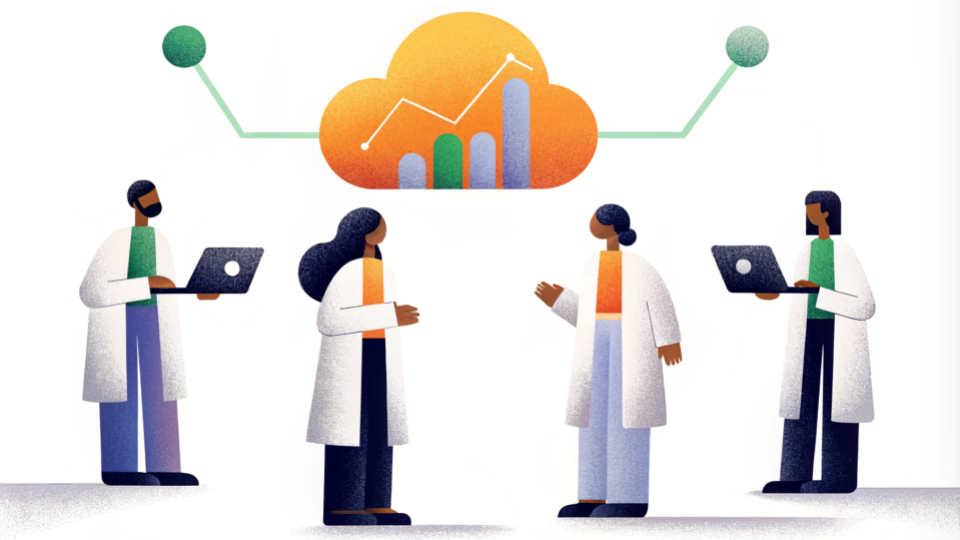Optum : The Hidden Giant Optum-izing Your Healthcare

Optum, founded in 2011, is a healthcare innovation company that operates as a subsidiary of UnitedHealth Group. Its headquarters is located in Eden Prairie, Minnesota, United States. Optum emerged from UnitedHealth Group’s mission to streamline healthcare services and create an integrated system focused on efficiency and accessibility. The company combines advanced data analytics, pharmacy care services, population health management, and clinical expertise to support better patient outcomes and reduce healthcare costs. (Optum)
Optum divides its services into three main divisions: Optum Health, Optum Insight, and Optum Rx. Optum Health provides primary care, urgent care, and mental health services; Optum Insight offers data-driven solutions to enhance healthcare delivery and patient care; and Optum Rx manages pharmacy benefits, focusing on affordable access to medications. Together, these branches create a unified healthcare experience that serves individuals, health providers, and government agencies.
Through innovations in telehealth, home delivery for medications, and advanced analytics, Optum is redefining the healthcare landscape, aiming to make healthcare simpler and more personalized. As of recent years, the company’s efforts have expanded globally, with a presence in countries including India, Brazil, Ireland, and the United Kingdom.
Roots of Optum : Building a Healthcare Powerhouse
Optum, a leading health services innovation company, was founded in 2011 as a subsidiary of UnitedHealth Group. Optum was created by consolidating UnitedHealth Group’s existing pharmacy and healthcare management services into a unified brand. This move aimed to improve healthcare delivery, data management, and affordability in the health industry by addressing inefficiencies across various areas, such as pharmacy services, healthcare operations, and clinical care.
Currently, Heather Cianfrocco serves as CEO of Optum. She assumed this role in April 2024 after holding multiple executive positions within the company. With a strong background in corporate and healthcare law, Heather previously led Optum’s Health Services and Optum Rx divisions. Her academic background includes a law degree from Duquesne University and a master’s degree in healthcare delivery science from Dartmouth College. Before joining UnitedHealth Group in 2008, she specialized in mergers and acquisitions in the healthcare sector, working in private law practice. (Heather Cianfrocco)
Optum’s parent company, UnitedHealth Group, is a prominent player in American healthcare, known for its insurance arm, UnitedHealthcare. The creation of Optum allowed UnitedHealth Group to build a data-driven foundation for healthcare services and expand its role significantly in the healthcare landscape. Today, Optum operates as a multi-division entity with a strong presence in analytics, pharmacy management, and healthcare consulting.
Healthcare Market : A Market that’s Growing Like Wildfire
The global healthcare market is one of the fastest-growing sectors, driven by advancements in technology, rising healthcare needs, and an aging population. As of 2024, the market is valued at approximately $13.31 trillion and is projected to reach around $22.57 trillion by 2031, growing at a compound annual growth rate (CAGR) of 8.27%. (Verified Market Research)
With increasing demand, several trends are reshaping the industry. The healthcare sector is increasingly adopting digital technologies like telehealth, cloud computing, and artificial intelligence (AI). These advancements are designed to improve patient outcomes, streamline administrative processes, and reduce healthcare costs. The healthcare IT segment alone is expected to see significant growth, particularly in cloud computing and AI.
Furthermore, the aging global population and prevalence of chronic diseases are driving up healthcare costs and patient volumes, intensifying the need for innovative solutions. Remote care models, telemedicine, and AI-powered diagnostics are increasingly adopted to manage these demands, reduce in-person visits, and make healthcare more accessible. (Deloitte United States)
With these trends and innovations, healthcare companies, including Optum, are well-positioned to capitalize on market expansion while addressing industry challenges like cost control and patient accessibility.
Optum’s Health Mission: Taking Healthcare Higher, One Solution at a Time
Optum’s mission is to create a healthier world by making healthcare more efficient, affordable, and accessible for everyone. As part of UnitedHealth Group, Optum’s vision focuses on evolving healthcare to put patients at the center, ensuring they have a seamless and personalized experience across all levels of care. Optum addresses major challenges in healthcare through innovation, aiming to make care accessible to all through technology and integrated services
Problems They Solve
Optum tackles some of the most persistent issues in healthcare: affordability, accessibility, and operational complexity. By using data analytics, they support improved decision-making for better patient outcomes. Their pharmacy services reduce costs and increase access to medications, while their telehealth and virtual care options provide remote healthcare services to underserved communities. Through population health management, Optum also works on preventive care, aiming to reduce chronic illness rates and associated costs by focusing on early intervention.
Business Model
Optum operates through three primary divisions: Optum Health, Optum Insight, and Optum Rx. Optum Health delivers direct healthcare services, including primary and specialty care, to improve patient outcomes through a more integrated system. Optum Insight provides data-driven solutions for healthcare providers and payers, focusing on analytics and operational efficiency. Optum Rx manages pharmacy benefits, providing medication management and affordable access to prescription drugs. This diversified model enables Optum to generate revenue across multiple healthcare areas, using a value-based care model that emphasizes better outcomes and cost savings.
Suite of Solutions : A Pharmacy, a Doctor, and Data Walk into a Clinic
Optum offers a wide range of healthcare solutions tailored for patients, healthcare providers, insurers, and government agencies, designed to improve care quality, optimize costs, and support patient well-being.
1. Optum Rx: Pharmacy Solutions
Home Delivery & Specialty Pharmacy: Optum Rx’s home delivery services ensure patients receive their medications quickly and securely, directly to their homes. Specialty Pharmacy services provide personalized care for individuals managing chronic conditions requiring complex treatments, such as cancer and autoimmune disorders. Specialty Fusion, a notable service within this area, integrates pharmacy and medical benefits at the point of care, helping manage medication plans and lower costs by reducing duplication in benefits and ensuring patients access necessary medications easily. (Home Delivery) ( Specialty Pharmacy)
Cost Management Features: Optum Rx focuses on providing affordable pharmacy services by leveraging data analytics to negotiate with suppliers and optimize medication pricing. Its complex medication management programs aim to streamline prescriptions and reduce waste through coordinated care and accurate medication delivery.
Genoa Healthcare: Genoa Healthcare, a part of Optum, specializes in behavioral health pharmacy services, delivering comprehensive care to those with mental health conditions and substance use disorders. It operates directly within community mental health centers, making it convenient for patients to access medications, consultations, and support tailored to their unique needs. Genoa’s approach integrates pharmacy services into mental healthcare, improving medication adherence and outcomes for patients who may struggle with complex health issues. (Genoa Healthcare)
2. Optum Health: Clinical and Patient-Centered Solutions
House Calls Program: Designed primarily for seniors and high-risk patients, HouseCalls provides in-home assessments by licensed healthcare providers. The assessments cover routine checks and medication reviews, allowing for the early identification of health issues. This service improves patient engagement and supports Optum’s goal of delivering preventive care that reduces hospital visits and enhances quality of life. (House Calls)
Behavioral Health Services: Optum offers a range of behavioral health solutions, including virtual therapy, peer support, and personalized mental health programs. These services are integrated with primary care to ensure comprehensive support. For state programs, Optum provides specialized behavioral health services targeting high-risk populations, including those in the criminal justice system, offering clinical support to reduce re-admission rates and improve overall mental health outcomes. Behavioural Health)
3. Clinical Technology Solutions (CTS) and Data Analytics
Electronic Health Records (EHR) Management: Optum’s Clinical Technology Solutions (CTS) uses data-driven models to enhance EHR functionality, allowing healthcare providers to access and update patient information in real-time. This system reduces administrative burden and enhances provider-patient interactions by making patient history, lab results, and imaging accessible instantly at the point of care. (EHR)
Data and Analytics Enablement: Optum’s data analytics capabilities allow providers and payers to use predictive modeling, identify health risks, and manage patient populations more effectively. Their enterprise analytics products, including tools like Impact Pro, help identify patients who would benefit from preventive care, supporting population health management goals. Optum’s data solutions enable hospitals and providers to track quality and financial performance with data visualization dashboards. (Data & Analytics)
4. Government and Life Sciences Solutions
Optum Serve: Optum Serve delivers comprehensive healthcare services to military members, veterans, and government agencies. This division includes the Managed Transplant Program, which manages risks associated with complex conditions like organ transplants, offering cost-effective solutions. Additionally, Optum Serve provides population health solutions tailored to state healthcare agencies, helping them deploy analytics-driven tools for strategic planning and effective health outcomes. (Optum Serve)
State Health Solutions: For state and federal agencies, Optum offers eligibility and enrollment solutions through its Integrated Eligibility Services. This system enables streamlined access to healthcare and human services programs, reducing administrative challenges and improving enrollment efficiency. Optum also collaborates with state agencies on public health initiatives, helping address pressing health concerns like tobacco cessation through targeted support programs. (State Health)
Life Sciences Solutions: Optum’s Life Sciences Solutions leverage data-driven technologies to advance pharmaceutical research, clinical trials, and therapeutic development. These solutions integrate big data analytics, artificial intelligence, and machine learning to offer insights into patient outcomes, predictive modeling, and real-world evidence. By accessing Optum’s vast healthcare data resources, pharmaceutical companies and researchers can optimize clinical trial design, identify potential patient populations for targeted therapies, and accelerate drug discovery through advanced simulations. Additionally, Optum supports regulatory and compliance needs, providing secure data management systems that align with HIPAA, GDPR, and other industry standards. (Life Sciences)
The Heart of Healthcare: How Optum Uses Tech to Pump Up Efficiency
Optum uses advanced technology and data-driven approaches to improve healthcare accessibility, efficiency, and outcomes. Each of Optum’s products leverages modern tech tools like artificial intelligence, data analytics, and cloud solutions, creating an integrated and seamless healthcare experience for providers, patients, and payers alike.
Data Analytics and Predictive Modeling
Optum applies powerful data analytics and predictive modeling to enhance healthcare decision-making. Using machine learning algorithms, Optum’s systems identify patterns in patient data, predict health risks, and support population health management. For example, tools like Optum’s Impact Pro utilize predictive analytics to flag high-risk patients, enabling early intervention and reducing hospital admissions. The insights from these tools support payers and providers in delivering targeted, preventive care, aligning with the broader goal of improving health outcomes and lowering costs.
Electronic Health Records (EHR) Integration
To streamline patient data management, Optum’s Clinical Technology Solutions (CTS) offer extensive support for electronic health record (EHR) systems. These systems simplify provider workflows by ensuring that patient information, lab results, and historical data are accessible in real-time at the point of care. Additionally, Optum’s EHR integration includes secure cloud-based storage, making data available across multiple locations, improving continuity of care, and reducing administrative burdens for healthcare providers.
Telehealth and Virtual Care Platforms
With telehealth becoming increasingly essential, Optum has developed a comprehensive virtual care platform. This platform provides telemedicine services and supports remote consultations, which is particularly beneficial for rural or underserved communities. The telehealth system integrates with EHR, allowing healthcare professionals to access patient data during virtual visits and ensure informed treatment decisions. This integration enhances the user experience and provides continuous, accessible care.
Pharmacy Management and Cost Control
Optum Rx, the pharmacy arm of Optum, uses real-time analytics to optimize medication costs and streamline pharmacy services. Its Specialty Fusion solution integrates pharmacy and medical benefits directly at the point of care, helping manage specialty drug expenses and providing real-time updates on patient prescriptions. This feature ensures that medications are managed efficiently, preventing delays and improving treatment adherence. Additionally, Optum Rx’s analytics help identify cost-saving opportunities by monitoring pricing trends and negotiating better terms with suppliers.
Behavioral Health and Wellness Technologies
Optum also incorporates digital tools in behavioral health, using tech-based assessments and virtual peer support networks. The Optum Behavioral Health platform supports patients with mental health services through a mix of AI-driven screenings, peer interactions, and teletherapy sessions. This virtual structure helps reduce stigma and makes mental health services more accessible, providing a holistic support network for those in need.
An Award-Winning Dose of Innovation: Optum’s Impact on Healthcare
Serving over 100 million people and supporting 200,000 providers, Optum is a major player in the healthcare landscape. Its focus on patient-centered care and operational efficiency has helped healthcare providers enhance service quality, reduce costs, and improve patient outcomes.
Optum’s efforts have earned it multiple prestigious awards. Frost & Sullivan recognized Optum as a market leader in the U.S. Population Health Management (PHM) sector, awarding it the “Company of the Year”. (Frost & Sullivan)
Optum has also been awarded for its innovative partnerships with healthcare systems through initiatives like the Market Performance Partnership. This partnership helps hospitals like Boulder Community Health in optimizing performance through innovative models and data-driven solutions. (Market Performance Partnership)
Public Health Impact
During the COVID-19 pandemic, Optum quickly adapted its data analytics and telehealth tools to help identify and support high-risk patients. Its real-time analytics were used to track COVID-related cases, manage hospital capacity, and monitor vaccine distribution.
It Takes a Village: Optum’s Network of Partnerships
Optum continues to build strategic partnerships that enhance healthcare delivery and operational efficiency across the industry.
Bassett Healthcare Network Partnership
In 2024, Optum partnered with Bassett Healthcare Network, a central New York health provider, to manage business functions like data analytics, revenue cycle management, and information technology. This collaboration enables Bassett to maintain its independence while benefiting from Optum’s expertise in operational efficiency. Through “smartsourcing,” this partnership supports local talent retention and ensures sustainable, quality care for the community. (Bassett Healthcare)
Optum Serve and Federal Government Initiatives
Optum Serve, Optum’s division for government health programs, plays a vital role in federal healthcare services. In 2024, Optum Serve, in collaboration with Aspen Medical, secured the Department of Health and Human Services’ (HHS) Administration for Strategic Preparedness and Response (ASPR) Disaster Medical Assistance Team (DMAT) contract. This partnership provides medical staffing and disaster response support nationwide, ensuring communities receive rapid medical assistance during crises. Optum is one of the primary vendors supporting the Defense Health Agency (DHA), allowing for the recruitment and management of medical staff for military health services. (Aspen Medical)
Health System Partnerships
Optum has forged impactful partnerships with several health systems across the United States. For example, it collaborates with SSM Health to improve care accessibility and affordability, particularly in the Midwest, by pooling resources to advance health equity initiatives. (SSM Health)
OptumLabs with Mayo Clinic
One of Optum’s most notable collaborations is OptumLabs, co-founded with Mayo Clinic. OptumLabs serves as an open, collaborative research and innovation center based in Cambridge, Massachusetts. By merging Mayo Clinic’s clinical insights with Optum’s health claims data, this facility pioneers research that directly informs patient care strategies. (Mayo Clinic)
Strategic Industry Alliances
Optum also works with various organizations to strengthen its technology and operational capabilities. Partnerships with organizations like the American Medical Group Association (AMGA) and Johns Hopkins Bloomberg School of Public Health allow Optum to leverage advanced clinical data and research insights. In a unique initiative, Optum partnered with Walmart to enhance value-based care and expand healthcare access through select Walmart Health centers. (Walmart)
Healthy Returns: Optum’s Financial Growth Fueling Healthcare
Optum, as a key part of UnitedHealth Group, continues to show impressive growth in revenue, driven by its diversified services across healthcare. In the second quarter of 2024, Optum achieved revenue of $62.9 billion, marking an 11.7% increase compared to the previous year. This strong performance was due to the expansion of Optum Health’s patient base and growth in Optum Rx’s pharmacy services, which saw heightened demand for both specialty and home delivery prescriptions (United Health Group)
Optum Health generated about $27 billion in Q2 2024 alone, with a 13% increase from last year. This growth is attributed to its value-based care model, which currently serves nearly 5 million patients, highlighting Optum’s focus on long-term, proactive health management. Additionally, Optum Rx posted a 13% rise in revenue, reaching over $32 billion for the same quarter. This growth came from enhanced pharmacy services, such as specialty medications and expanded client relationships. (Becker’s ASC)
With strong revenue streams across its divisions, Optum is expected to contribute significantly to UnitedHealth Group’s projected revenue of around $400 billion for 2024.
Optum for the Future: Innovate, Inspire, and Invest in Health
Optum has established itself as a transformative force in the healthcare industry. By leveraging advanced data analytics, cutting-edge technology, and comprehensive health services, it aims to improve patient outcomes, reduce costs, and make healthcare accessible to all. From pharmacy management and primary care services to extensive partnerships with hospitals and government agencies, Optum continues to redefine how healthcare is delivered and managed
Optum’s holistic approach includes telehealth, behavioral health, and pharmacy solutions that collectively serve millions of patients. It also supports healthcare providers with advanced tools like predictive analytics and electronic health record (EHR) systems, which streamline patient management and optimize operations. By focusing on a value-based care model, Optum aims not only to treat illnesses but also to prevent them, ensuring healthier lives for the long.
If you’re inspired by Optum’s innovations, take a moment to think about the changes you’d like to see in healthcare—or any industry. Your ideas, no matter how small, could shape the future. Venture Kites is here to support and highlight such innovative concepts. Don’t forget to explore more articles on Venture Kites to learn about other companies transforming industries across the globe.
At a Glance with DORK Company

Dive In with Venture Kites
Lessons From Optum
Offer on Preventive Strategies
The Lesson & Why it Matters: Prevention is efficient and valuable. Focusing on prevention keeps future costs down and builds trust with clients or customers.
Implementation: Build solutions that address potential challenges before they escalate, whether through proactive communication or targeted preventive services.
How Optum Implements It: Optum’s preventive care programs aim to keep patients healthier in the long run, lowering healthcare costs and reducing hospital visits.
Foster Innovation for Long-Term Relevance
The Lesson & Why it Matters: Innovation keeps businesses relevant in a competitive market. Entrepreneurs who innovate continuously stay ahead and attract new interest.
Implementation: Encourage creative thinking and regularly review your product or service for improvement opportunities.
How Optum Implements It: Optum’s ongoing advancements in AI, telehealth, and analytics keep its services relevant, enhancing value for patients and providers.
Engage with Communities You Serve
The Lesson & Why it Matters: Community engagement creates loyalty and positive impact. Entrepreneurs who stay involved in their communities build lasting connections and learn directly from their audience.
Implementation: Participate in community events, seek feedback, and tailor your offerings to meet local needs.
How Optum Implements It: Optum works closely with local communities, especially through Optum Serve, providing specialized support for veterans and underserved populations.
Embrace Cross-Industry Partnerships
The Lesson & Why it Matters: Partnerships across industries bring fresh perspectives and skills, expanding a company’s capabilities and reach.
Implementation: Collaborate with organizations that complement your strengths. Look for partners outside your immediate field for innovative insights.
How Optum Implements It: Optum partners with government bodies, tech companies, and healthcare providers, creating diverse, cross-functional networks to deliver holistic healthcare solutions.
Maintain Focus on Accessibility
The Lesson & Why it Matters: Ensuring accessible services attracts a wider audience and promotes equity in service delivery.
Implementation: Evaluate accessibility gaps and deploy solutions that make your services inclusive and user-friendly.
How Optum Implements It: Optum Serve supports federal programs that ensure healthcare access for underserved populations, especially veterans and rural communities.
Youtube Shorts
Author Details
Creative Head – Mrs. Shemi K Kandoth
Content By Dork Company
Art By Dork Company
Instagram Feed
X (Twitter) Feed
🚀 Introducing @elevenlabsio : Redefining the Future of AI Voices! 🗣️🎙️
— Venture Kites (@VentureKites) November 8, 2024
Dive into how this innovative platform is transforming digital content with lifelike AI voice tech, powered by co-founders Mati Staniszewski and Piotr Dabkowski 👇👇#AIVoice #VoiceTech #StartupJourney












